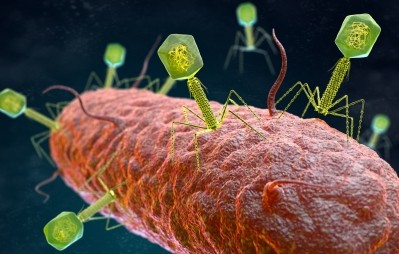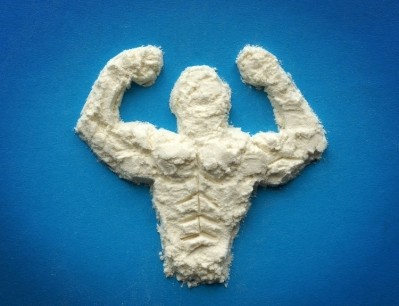Phage cocktail shows gut microbiota benefits: Deerland RCT data

Data from a randomized, double-blind, placebo-controlled crossover intervention trial involving 43 participants indicated that daily consumption of supplemental phages (PreforPro from Deerland Probiotics and Enzymes) led to significant reductions in E. coli and increases in populations of the genera Eubacterium, one of the most abundant genera in the healthy human gut.
“Bacteriophages offer a novel and selective means of modifying the gut microbiota, thereby influencing the intestinal environment without causing global perturbations that can lead to microbial dysbiosis,” explained the researchers in the journal Nutrients.
“In the current study, we confirmed that phage treatment was not associated with global perturbations in the gut microbiota, as evidenced by a lack of differences in community descriptors such as richness and α-diversity between treatments or over time […] On the contrary, disruption of microbial communities by antibiotics and other pharmaceutical treatments can predispose individuals to dysbiosis and create ecological niches where pathogens can establish a foothold, as is commonly seen with Clostridium difficile infections.
“Thus, phages represent a novel means of selectively modifying the microbiota without causing global disruptions to community structure.”
Deerland funded the study, which was performed by scientists from Colorado State University, Polaris Expeditionary Learning School, the USDA, and Think Healthy Group.
Study details
The new study involved 43 participants aged 18 to 65 randomly assigned to receive the Escherichia coli-targeting bacteriophages (LH01-Myoviridae, LL5-Siphoviridae, T4D-Myoviridae, and LL12-Myoviridae) or placebo for 28 days. This was followed by a minimum two-week “washout” period before crossing over to the other intervention group.
Results showed that PreforPro consumption led to significant decreases in E. coli and to significant decreases in the proportion of taxa closely related to Clostridium perfringens.
On the other hand, 4–5-fold increases in populations of the genera Eubacterium were reported.
The researchers also reported a reduction in the circulating levels of pro-inflammatory cytokine Il-4, which is correlated with autoimmune and allergic responses. However, no significant differences between the groups were reported for short-chain fatty acid production, lipid metabolism, or other markers of inflammation.
“This study merely broaches the edge of this potential, and along with our previously published data [Gindin et al. 2018, J. Am. Coll. Nutr., Vol. 38, pp. 68–75], confirms the safety and tolerability of phage consumption in a human population,” wrote the researchers.
“These data support further studies on the microbiota modulatory potential of bacteriophages for use as a dietary supplement and possibly as a therapeutic agent in clinical populations of intestinal inflammation.”
IP
Deerland already has a composition patent to cover the ingredient, titled “Prebiotic compositions comprising one of more types of bacteriophage”.
The patent outlines the “compositions that comprise one or more types of bacteriophage and methods of using such bacteriophages as a prebiotic to promote the growth of beneficial bacteria by decreasing harmful bacterial populations and releasing nutrients into the environment for good bacteria in the digestive system of an individual.”
A prebiotic is defined as: “A substrate that is selectively utilized by host microorganisms conferring a health benefit” (ISAPP 2017). Prebiotic ingredients are typically fiber or starch-based components that “feed” the good bacteria in the gut.
Deerland describes PreforPro as a “novel prebiotic that supports the growth of healthy bacteria throughout the digestive tract through a mechanism that is not fiber, carbohydrate or starch‐based”.
Commenting on the new study’s findings, John Deaton, vice president of science & technology for Deerland Probiotics and Enzymes, said: “Ingesting probiotics are only half the healthy gut microbiome equation; effective prebiotics are the other half that encourage resident beneficial bacteria to populate.
“PreforPro is unique in that it is a bacteriophage that is patented for use as a prebiotic, and it’s attractive for consumers who are concerned about starch consumption and having to take large doses – as PreforPro is a non-starch/fiber compound that exerts its prebiotic abilities in a small, 15 mg dose.”
Source: Nutrients
2019, 11(3), 666; doi:10.3390/nu11030666
“PHAGE Study: Effects of Supplemental Bacteriophage Intake on Inflammation and Gut Microbiota in Healthy Adults”
Authors: H.P. Febvre et al.
















